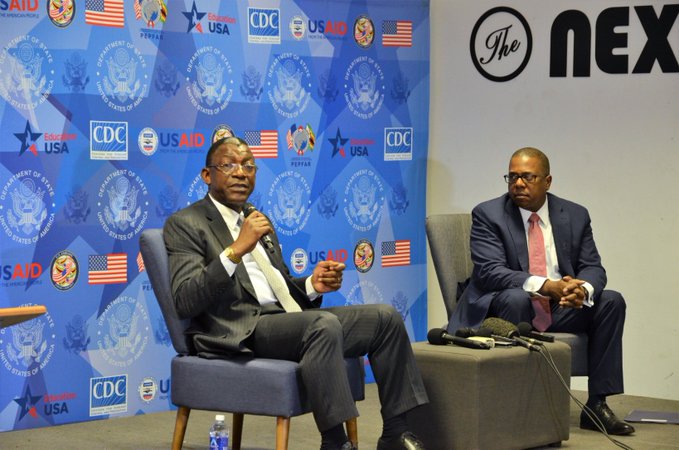By Joyce Mukucha
The United States(US) Government through the United States Agency for International Development (USAID) has provided an additional of US$ 41, 9 million to respond to the critical food security situation in Zimbabwe.
The fund is meant to ensure that more than one million rural vulnerable Zimbabweans in sixteen districts have access to adequate to food supplies before the next harvest. The assistance is expected to run from October 2019 to April 2020.
Briefing the media in Harare on the 24th of September 2019, the US Ambassador to the Republic of Zimbabwe, Brian Nichols alluded that there was need to tackle the root causes of food insecurity and poverty affecting the nation. He highlighted that the contribution was going to enable USAID in scaling up its emergency response over the coming months.
“The United States is proud to be part of a coordinated response to the humanitarian situation. We will work closely with the World Food Programme (WFP) to ensure that there is response to the critical food security in Zimbabwe. While we recognise that there is currently a need for this type of assistance, humanitarian assistance alone is not enough. The root causes of food insecurity and poverty must be tackled for Zimbabweans to end chronic food insecurity for good,” he said.
Ambassador Nicholas urged the Government of Zimbabwe to implement a market-based agriculture policy and eradicate corruption in its subsidy programs, which severely exacerbate the very problems of food insecurity they are purportedly intended to solve.
The World Food Programme (WFP) Country Director, Eddie Rowe said the USAID assistance was a welcoming and generous new contribution to support the people of Zimbabwe. He promised to continue providing critical food and livelihood support to the people who are hardest-hit at time of extraordinary needs.
“Over the last year, Zimbabwe has experienced drought, economic instability and the shock of Cyclone Idai. These circumstances requires such support which has been announced by the United States. WFP is grateful for this generous new contribution from the American people, which will be key to ensure vulnerable households meet their food and nutrition needs in difficult circumstances,” said Rowe.
USAID’s programmes will also improve long term food security for Zimbabwe by building resilience to future shocks. The United States is providing US$144 million over seven years to non-governmental partners Cultivating New Frontiers in Agriculture and World Vision to address the underlying causes of chronic food insecurity and malnutrition in rural areas. In order to reduce rural poverty and improve food security through increased agricultural production and linkages for small-scale farmers, the USAID has also provided US$20 million over five years through the Feed Future initiative to Fintrac, Inc. and LEAD Trust to reduce rural poverty and improve food security through increased agricultural production and market linkages for small-scale farmers.
For more than 30 years the American people, through USAID have contributed over $3 billion in assistance to Zimbabwe. Current projects include initiatives to increase food security, support economic resilience, improve health systems and services and promote democratic governance.
Today’s additional contribution brings the total U.S humanitarian funding in response to the 2019/20 lean season to US$86, 9 million. The resources are in addition to US45 million in emergency food security funding from the United States announced in February of this year in support of 2018/19 lean season needs under the UN Flash appeal and US$7,9 million in Cyclone Idai response funding.
On August 6, the United States announced US$45 million in funding to the WFP to provide food rations and cash transfers in response to the UN Flash appeal meant to improve the nutrition of vulnerable Zimbabweans and alleviate suffering for those affected by food insecurity.
In total, the US contributions are $109, 8 million in 2019, making the United States the largest bilateral donor to emergency humanitarian assistance in Zimbabwe.






